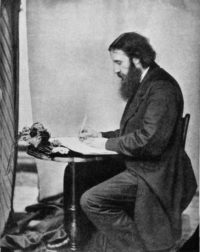Authorpreneur
Authorpreneur by Jesse Tevelow is a book I read out of my continual inferiority complex about NOT being an entrepreneur like my husband. Entrepreneurs can take their natural gifts and hobbies and sell them. Helping others see the value of what they do is a reflex. As Tevelow puts it,
We’re all salespeople. When we go on a date, we’re selling our personality. When we defend our opinions, we’re selling our beliefs. When we apply for a job, we’re selling our skills. When we write a blog post, we’re selling our ideas.
Try though I may, I can’t get enthusiastic about this way of seeing myself. My personality is what it is, take it or leave it; I’ve never been one of the most popular people out there. My opinions are not put up for sale, but in a state of perpetual revision based on conversations and new information. I blog not to sell my ideas, but to clarify them and seek connections; writing them here invites discussion and externalizes ideas, making them easier to take account of.
I’m a pathetic excuse for an entrepreneur. Yet a book like this is a dangling carrot. Is it really possible to do what I do naturally and get paid? I would see this as justifying my life in a way. So far, my entire investment of myself reaps only intangible rewards. I like to think homeschooling, parenting, playing the piano at church, sharing nature photos, blogging, praying, being a friend are investments that create value of some kind, somewhere. But it hasn’t been in the way the first half of my life would have predicted. The first half of my life was a professional investment; the second half has been a personal one. I really have no idea if it’s “paying off,” or how to measure it.
Reading this book, it turns out it’s not that easy. You can’t just start cashing in materially on being yourself. You have to become an expert marketer. At least 50% of your time and energy should go toward marketing your book before you even have it written, and Authorpreneur is an eye-opener about the publishing world — specifically digital publishing and marketing. It contains a wealth of information about how one can produce, market and launch an e-book. Much of it is inspiring and highly practical.
But I couldn’t help feeling skeptical. For example, if everyone followed Jesse Tevelow’s model, we never would have known a Wendell Berry. While it’s true that when writers can break free of the gatekeepers (publishing houses), the process of publishing becomes much cheaper, and the sheer volume of published work can be very stimulating. But it can also be overwhelming. Also, there are genres that wouldn’t lend themselves to this mold: complex works of art that insist on reflection and savoring, for instance. Authorpreneur focuses mainly on creative nonfiction: taking a strong stance on a controversial subject, writing a how-to book, or telling an interesting story.
Tevelow writes, “We now live in a world that favors content creators over gatekeepers.” This definitely has its up sides. There are plenty of great writers who got rejected for a majority of their writing lives and never knew the impact they would have on future readers. What appeals to me about bypassing the publishers is that their estimation of a book’s niche or marketability doesn’t become an obstacle to an aspiring writer.
 But from another perspective, marketing becomes even more important, and the author has to become the expert. Does this diminish the quality of the writing? For someone like me who is not naturally an entrepreneur, I tend to see a conflict between salability and authenticity. Yet some “great” books were written just to pay the bills, so I guess the answer is, “Not necessarily.”
But from another perspective, marketing becomes even more important, and the author has to become the expert. Does this diminish the quality of the writing? For someone like me who is not naturally an entrepreneur, I tend to see a conflict between salability and authenticity. Yet some “great” books were written just to pay the bills, so I guess the answer is, “Not necessarily.”
In short, Authorpreneur leaves me conflicted. It is a good book, informative, direct, and packed with information. But it doesn’t answer the questions you have to answer for yourself if you cherish a dream of being a writer. Since my 8th birthday when my parents gave me a green plastic typewriter to nurture what they saw as a writing interest, I’ve held that dream somewhere. (Publishing an academic book hasn’t quenched it.) But there are still trip wires and weaknesses to work through before it can be fulfilled.




One Comment
Barrie Mooney
Ugh- this is the pull of a writer, right? Between authenticity and salesy pitches? Sounds like an interesting read, if not hard.